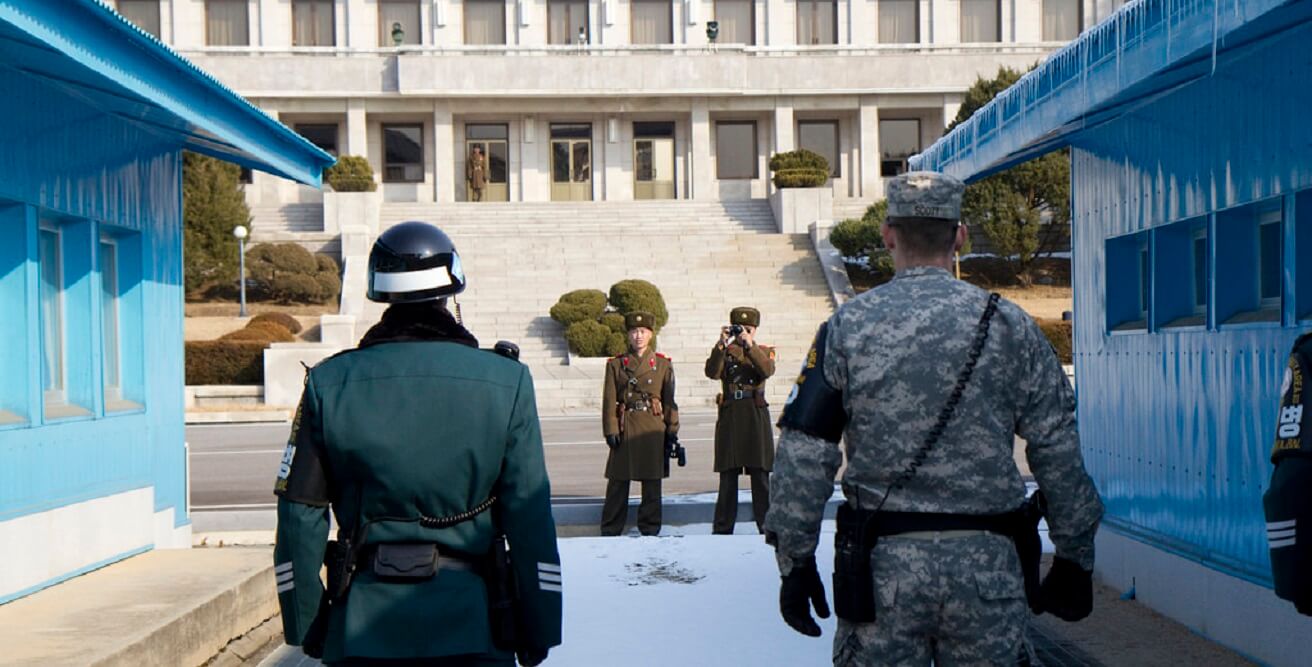The Australian forces, under Operation Linesmen, continue to work with their Korean counterparts to maintain peace in the Demilitarised Zone (DMZ) between North and South Korea, Australia’s Department of Defence said on Monday. The Operation Linesmen contingent has been assisting the United Nations (UN) Command and the UN Command Military Armistice Commission (UNCMAC) in upholding the terms of the Korean Armistice Agreement of 1953.
Deployed with the UN Command in South Korea, the Australian contingent is responsible for ensuring compliance with the truce and policing the demilitarised area. In addition, it is also responsible for monitoring the inter-Korea project to recover war remains within the DMZ. The war remains recovery project was approved by both sides during the signing of the Panmunjom Declaration in 2018. Moreover, the observing team of the contingent, consisting of four people, is responsible for conducting activities like construction, security overwatch, clearing of explosive remnants of war, and respectful exhumation of battlefield casualties. It is deployed on a rotating basis and is currently on its fifth rotation.
The Australian team also supports the UN command in building trust and rapport with the Korean Army and support initiatives from the Comprehensive Military Agreement, signed by North and South Korea in 2018.
On specifics of the operation, the commander of the Australian contingent, Squadron leader Tim Lowther, said: “The time invested in forging strong and effective working relationships across all levels of each Republic of Korea Army (ROKA) Task Force had been critical to mission success. It has been this cooperative reputation that enabled the observer team to effectively facilitate the ROKA mission whilst upholding the strict requirements of the armistice.”
Signaller Elizabeth Barnes, an interpreter with the Australian contingent, plays a vital role in translating crucial discussions to effectively convey both sides’ intentions. Barnes said: “Liaising with many elements and organisations has given me an appreciation of how complex the division of military responsibility is.” Furthermore, Lieutenant Eren Ulusoy, the team’s second-in-command, appreciated the strong professional relationships with ROKA. The Lieutenant said: “I count myself lucky for the opportunity to work in a tri-service team within the wider umbrella of the United Nations Command. It has been a fantastic learning experience to get exposure from so many different elements within the multinational and multi-service environment.”
Similarly, Warrant Officer Class 2 Thomas Saxby, who was deployed as part of the Australian observer team during the third rotation, reflected on the emotional unpreparedness while recovering the remains. He said: “These soldiers are being unearthed exactly where they fell 70 years ago. It’s also profoundly moving to see the respectful manner in which remains are handled and repatriated by the task force.”
The Korean Armistice Agreement of 1953 was signed by the military commanders from China and North Korea on one side, with the US-led United Nations Command signing on behalf of the international community to end the Korean War. In 2018, North Korea and South Korea signed the Comprehensive Military Agreement, which incorporates confidence-building initiatives to reduce tensions between both sides. Consequently, the UN Command, responsible for implementing the truce, requested the Australian forces to aid the Command in monitoring the 2018 agreement.
The Australian Defence Forces support the inter-Korean peace process through the operation and demonstrate their commitment to security matters by engaging closely with the United States and the Republic of Korea.
Australian Forces Continue to Uphold Korean Armistice Agreement in Demilitarised Zone
The Australian Defence Forces continue to support the United Nations Command in upholding the Armistice agreement between North and South Korea to reduce tensions.
July 5, 2021

SOURCE: AUSTRALIAN INSTITUTE OF INTERNATIONAL AFFAIRS
